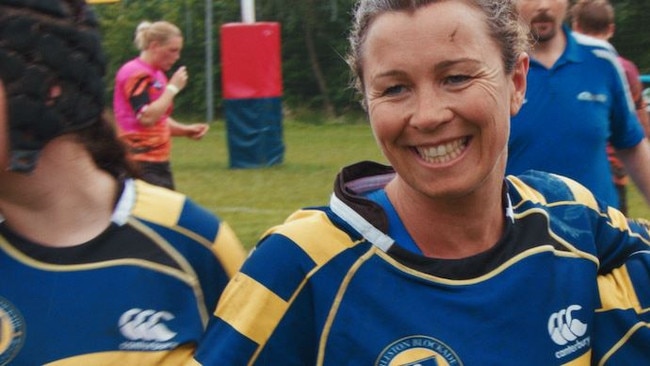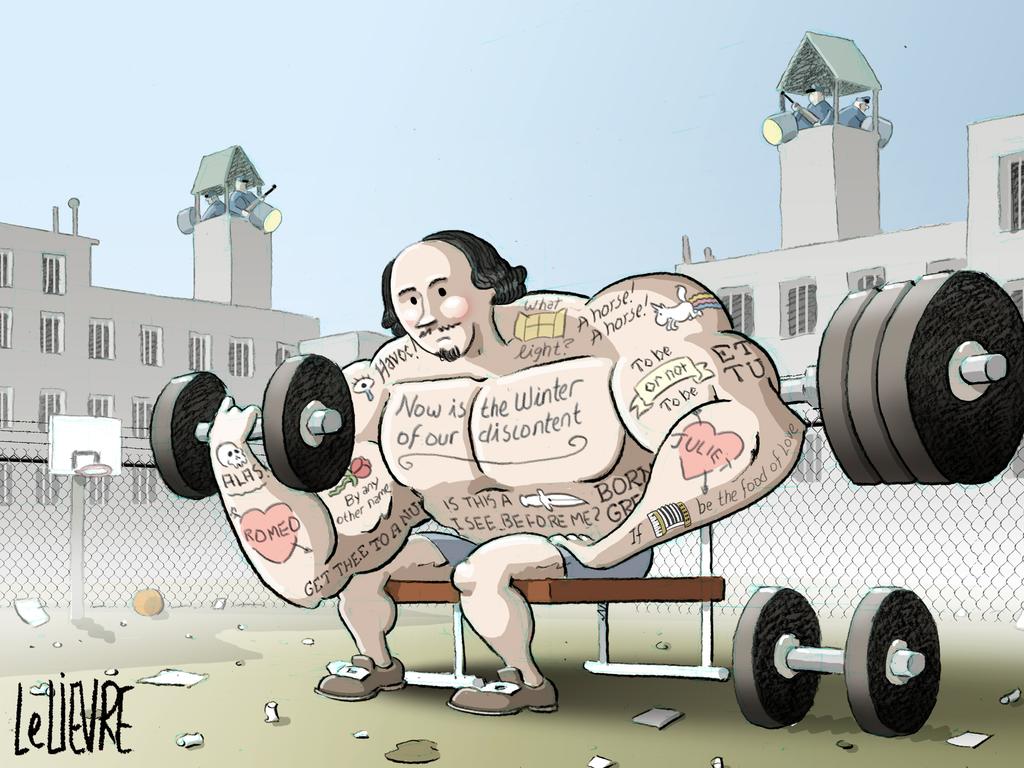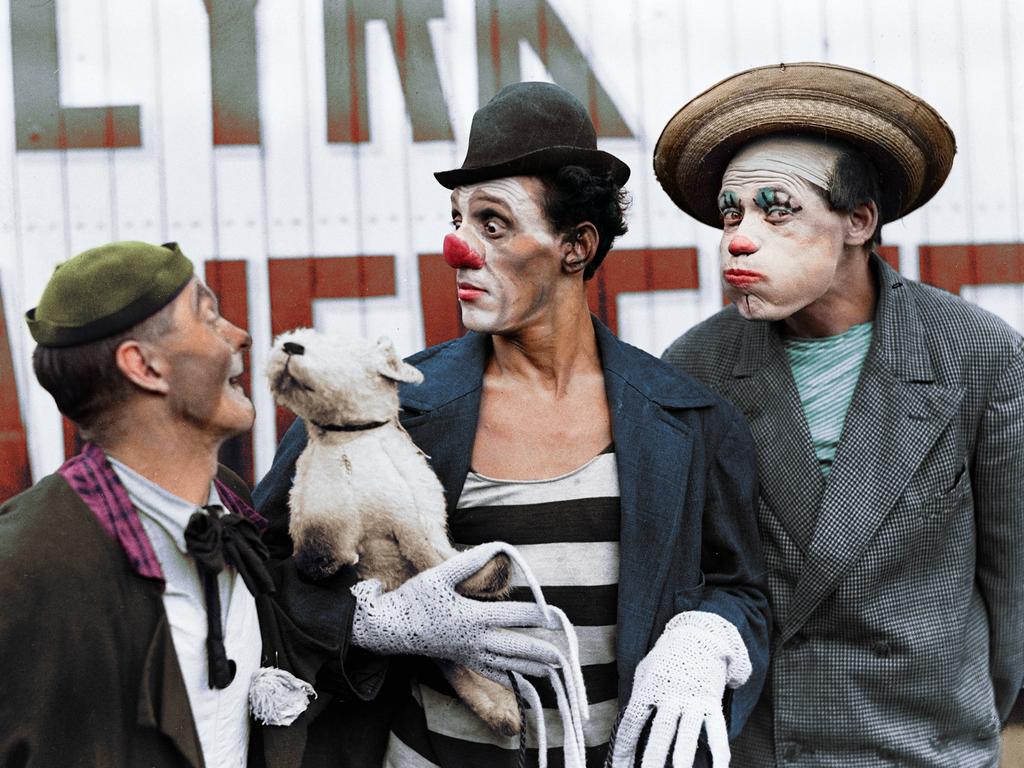Steelers: The World’s First Gay Rugby Club soon casts it spell
As I have never been a follower of rugby, I went in to this documentary with some misgivings; but it soon cast its spell.

Steelers: The World’s First Gay Rugby Club (tbc)
Limited release
★★★½
As I have never been a follower of rugby, I began watching this independently made documentary feature with some misgivings; but it wasn’t long before Australian director Eammon Ashton-Atkinson’s candid and affectionate portrait of gay sportsmen (and one gay woman) cast its spell.
When Ashton-Atkinson, TV reporter and cameraman for Network Ten, was posted to London, he became a member of The Kings Cross Steelers, a club established in 1995 as a pioneer for gay sport; it was the first of its kind, but now there are some 60 other gay rugby clubs around the world.
Ashton-Atkinson’s celebration of his former team, which he self-funded, takes place during the 2018 Bingham Cup tournament, held in Amsterdam.
We are introduced to Nic Evans, the Director of Rugby (effectively head coach), a dedicated, vulnerable gay woman from Wales whose passion for the game is total. Two team members are also selected for close study: Simon Jones, who still hasn’t got over the negative reaction of a straight friend when he first revealed he was gay, and Drew McDowell, a cheerful, chubby African-American who moonlights in a drag act (and is a pretty spectacular performer).
Steelers: The World’s First Gay Rugby Club aims to be about the struggle for acceptance and finding a place to belong – not particularly original ambitions, perhaps, but in this surprisingly engaging documentary they come to mean something important.
-
Never Rarely Sometimes Always (M)
Limited release
★★★★½
Changes in the composition of the US Supreme Court will almost certainly bring about a new debate on abortion, so this tough little film is, if nothing else, timely.
The story Never Rarely Sometimes Always tells is pretty simple: Autumn (Sidney Flanagan), a 17-year-old from a small town in Pennsylvania, is pregnant; unable to obtain an abortion locally without parental consent, she travels with her cousin and closest friend Skylar (Talia Ryder) by bus into New York City to seek the help she can’t get at home.
We never know the identity of the father of Autumn’s child, but it’s not surprising, really, that the teenager seeks help away from a home where her mother (Sharon Van Etten) is ineffectual and her stepfather (Ryan Eggold) hostile.
The film opens as Autumn performs at a high school talent show (her choice of song is “He’s Got the Power”, which includes lines such as “He makes me do things I don’t want to do” that are clearly significant).
As she sings, a lout sitting close to her parents shouts out “Slut!”, and in that one moment writer-director Eliza Hittman encapsulates the threatening environment in which a young girl finds herself in a small town, especially as the heckler is later seen sitting in the same restaurant where she is dining with her parents after the show. We never find out any more about this boy.
Autumn and Skylar both work at a shabby supermarket, and when Sklyar learns of her friend’s condition she’s instantly, unquestioningly supportive. But what can Autumn do? She tries drinking mouthwash, swallowing enormous quantities of vitamin pills, bashing her own stomach – all of it naturally to no avail.
A call to a local abortion clinic elicits the information that her parents will have to be told and give their consent, and that terrifies Autumn. So the girls pilfer some money from the store and set out on what they assume will be a 24-hour trip to the Big Apple to get the problem fixed.
It proves not to be nearly as easy as that. It’s winter and it’s cold and the girls have no money and nowhere to stay. The first hospital they visit redirects them to another, where they learn that the procedure will take place over two days. They spend their nights riding the subway trains.
All the men they encounter are in one way or another threatening and creepy, starting with Autumn’s stepfather. The supermarket cashier insists on kissing their hands as they pass bank notes through a small aperture into his office. A drunken businessman on the train ogles them and touches himself. Even the seemingly friendly student (Theodore Pellerin) who helps them seems to expect something in return.
The film’s title comes from a particularly unsettling scene at the hospital in which Autumn is asked a number of mandatory questions about her sexual life. “Are you made to have sex when you don’t want to?” the nurse enquires, and Autumn is given four options in reply: Never, Rarely, Sometimes, Always. This is a devastating scene, especially as Hittman has been careful not to reveal anything much about Autumn’s private life, though she drops some clues that are pretty disturbing.
The contrast between the small town, where everyone knows everyone and where this sort of secret will be hard to keep, and the soulless metropolis where probably anything is possible, but at a cost, is stark.
The film’s power comes not only from the two marvellous performances from the young actresses, but also from Helene Louvart’s excellent location photography in which the camera explores with compelling realism the cheap eateries, pinball arcades and underground subway stations that the girls inhabit.
Viewers may come away angered at the way these two young women are treated by society, troubled at the way the cards are stacked against them and inspired by their love and support for one another in such a challenging period in their lives.
Yes Never Rarely Sometimes Always (which is not to be confused with the recent British film Sometimes Always Never, 2018, which starred Bill Nighy) is a tough, confronting film. But the issues it explores are important and ongoing and are taking place right now in Australia. This is a film that demands to be seen by everyone concerned about the problem of teenage pregnancies.
-
The Mystery of Henri Pick (Le mystere Henri Pick) (M)
Limited release (outside Victoria)
★★★½
A deliciously Gallic puzzle, Remi Bezancon’s The Mystery of Henri Pick stars the ineffable Fabrice Luchini as Jean-Michel Roche, a self-important literary critic and host of a weekly TV book review program “Infinitif”, who loses his reputation, his job and his wife when he has the temerity to suggest that a sensational and highly praised new novel is a hoax.
The manuscript for “Les derniers heures d’une histoire d’amour” (“Last Hours of a Love Story”) has been discovered by junior publisher Daphne Despero (Alice Isaaz) in a bookshop in a village in Brittany; the shop contains a curious section featuring Rejected Manuscripts (they include titles such as “Masturbation and Sushi”), and it’s there that Daphne stumbles on the Russian-inspired tome, which turns out to have been written by a local, a recently deceased pizza chef called Henri Pick.
How, Roche asks, could a village pizza maker write a great novel? The critic sets out to prove that he didn’t, and his investigations are the core of this extremely urbane, polished and engaging satire on cultural snobbery.
Among an excellent cast, Camille Cottin, as the late pizza chef’s protective daughter, stands out with a wonderfully dry performance.
Like the recent The Translators, The Mystery of Henri Pick boasts a clever screenplay and some original ideas. It’s a charmer.







To join the conversation, please log in. Don't have an account? Register
Join the conversation, you are commenting as Logout